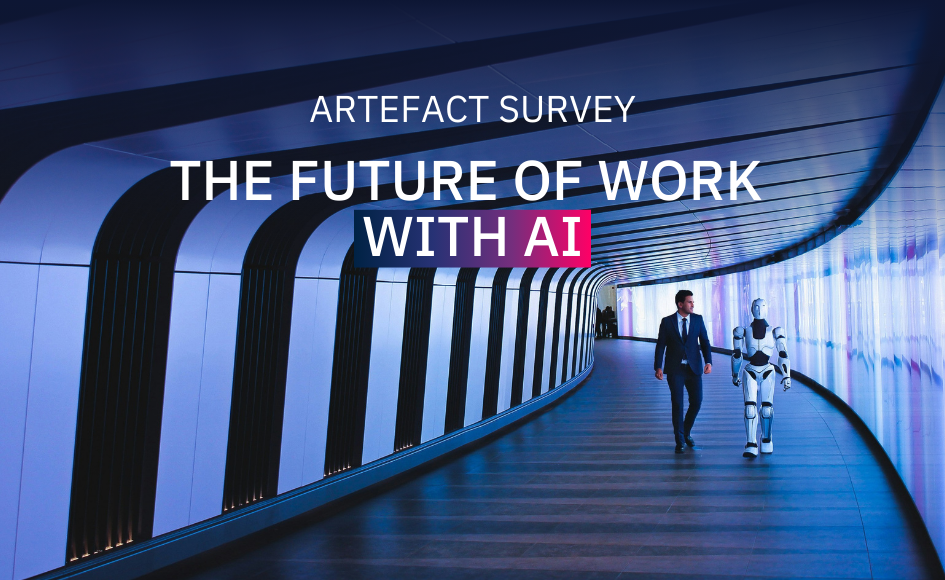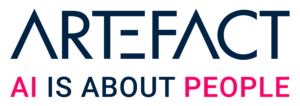Paris, February 7, 2025 – Artefact, a European leader in data and AI, and Odoxa, an independent research institute, have published a pioneering study on the impact of artificial intelligence on the world of work.
This study provides an in-depth analysis of AI adoption and integration, its effects on organizational transformation, and the future of work. Conducted between October and November 2024, the quantitative survey gathered insights from a panel of over 2,000 participants. Complementing this statistical approach, around thirty interviews were conducted with key figures in digital transformation, including CEOs, COOs, and transformation leaders.
Some key findings from the cross-analysis of quantitative data and clients and expert interviews:
1. AI Adoption in the workplace is growing rapidly, with no turning back for users
AI has become essential in the workplace, increasingly shaping employees’ daily routines. Currently, 12% of French employees already use AI, with an additional 30% reporting that AI is utilized within their company. Among those who use it, 92% express satisfaction.
2. AI significantly saves time for employees
AI enables employees to optimize their work time, significantly reducing repetitive and tedious tasks. On average, AI users save nearly one hour (57 minutes) per day, with the most advanced users reclaiming up to three hours. This freed-up time is reinvested in more strategic tasks, allowing employees to take on new responsibilities and expand their skill sets—75% report feeling “more liberated” in their tasks, and 21% believe AI has helped them develop new skills.
3. Despite individual productivity gains, companies struggle to achieve widespread productivity improvements
While 60% of respondents observe process transformations through simplification or automation, the overall impact on corporate performance remains unclear. Unlike traditional AI, which has already demonstrated efficiency in optimizing processes, generative AI has yet to yield measurable productivity gains at scale. However, the emergence of AI agents could be a game changer, enabling advanced automation of repetitive cognitive tasks and significantly enhancing overall productivity. Early deployments in customer service have already halved response times and boosted human agents’ productivity by 20%.
4. AI’s positive impact on employment, despite high-risk areas
Contrary to common fears, AI is currently creating more jobs than it eliminates—25% of employees report that AI has led to the creation of new roles. This impact is twofold: while AI is driving job creation in technical and data-related fields, it is also reshaping or displacing existing roles. While the overall outlook appears positive, certain departments—such as IT, customer relations, and back-office operations—are expected to undergo major disruptions.
5. Companies must prioritize AI literacy and support employees in their transition to “AI-Augmented Work”
As AI rapidly evolves, businesses must become hubs for continuous learning. The challenge is twofold: enhancing employees’ existing skills while preparing them for entirely new roles. However, the shift is not purely technical—it also requires structured training and support. Currently, 51% of AI users feel they lack the necessary skills to fully leverage AI.
6. Trust in AI is crucial for successful adoption
AI integration can only succeed in a framework of trust. Companies that implement clear and inclusive governance while ensuring transparency in AI deployment are the ones successfully reinventing their business models. Moreover, organizations investing in proprietary, trusted AI solutions are four times more likely to achieve productivity gains. Among employees in companies that have adopted proprietary AI, 54% report significant productivity improvements, compared to 28% on average.
7. Accelerating innovation and job transformation through AI
The effective integration of AI is already leading to job creation for a growing share of respondents (25% vs. 20%). AI is also driving innovation and democratizing access to cutting-edge services, facilitating entrepreneurship and job creation. Fields such as creative industries, research, and engineering—including software development—are particularly affected. AI provides powerful tools that enable individuals to prototype applications, accelerate R&D, and generate content in unprecedented ways.
“The biggest risk for companies and employees is failing to adopt AI quickly enough. Businesses have a critical role to play: first, by building trust with their workforce—especially since two-thirds of employees still perceive AI as a threat. Currently, nearly half of employees have not received any AI training, and among those who have, half feel inadequately trained. Making AI adoption a top priority is essential.”Vincent Luciani, CEO and Co-Founder of Artefact
“Trying AI is adopting it! While AI users remain a minority within companies, their enthusiasm is undeniable—92% satisfaction, a rate many brands would envy. The key drivers? Efficiency, enjoyment, and rekindled human connections. The challenge to overcome? Trust in the technology.”Céline Bracq, CEO of Odoxa
Full study results are available via this link.
The key findings of this report were presented at an event on February 7, which brought together the Minister of Labor and Employment, Madame Astrid Panosyan-Bouvet, former Minister of Public Sector Transformation Stanislas Guerini, Director of Talent & Transformation, CHRO at Natixis Cristel Guillain and President and Founder of Topics, Bruno Mettling.
About Artefact:
Artefact is a French consulting and engineering firm specializing in data and AI, and a European leader in the field. Headquartered in Paris, we are now present in 23 countries across all continents, with a team of 1,500 employees.
Our mission is to help businesses unlock the full potential of AI and data by developing tailored solutions that address their specific industry challenges. As pioneers in this field, we combine technological expertise with operational excellence, collaborating with major market players. From strategy to operations, we offer an end-to-end approach and solutions: data strategy, data quality and governance, data platforms, AI Factory, data-driven customer experience and marketing ROI.
Our clients span all key economic sectors – industry, retail, luxury, consumer goods, healthcare, finance, and more – including large international corporations.
Beyond consulting, we are actively committed to promoting ethical and accessible AI. We launched the “School of Data” to facilitate career transitions into tech roles and established Artefact AI Research Centers in Paris and Shanghai.
Find out more at www.artefact.com
About Odoxa :
Odoxa is an independent polling institute, founded in 2014 by Gaël Sliman and Céline Bracq, specializing in opinion surveys on societal, political, economic, and healthcare trends. Odoxa conducts and analyzes quantitative and qualitative studies for businesses, organizations, and media outlets.
Press Contact :
Maud Ollieric / maud.ollieric@taddeo.fr / 06.23.38.90.09
Celine Braque / celine.bracq@odoxa.fr / 06.42.61.75.48

 NEWS
NEWS



